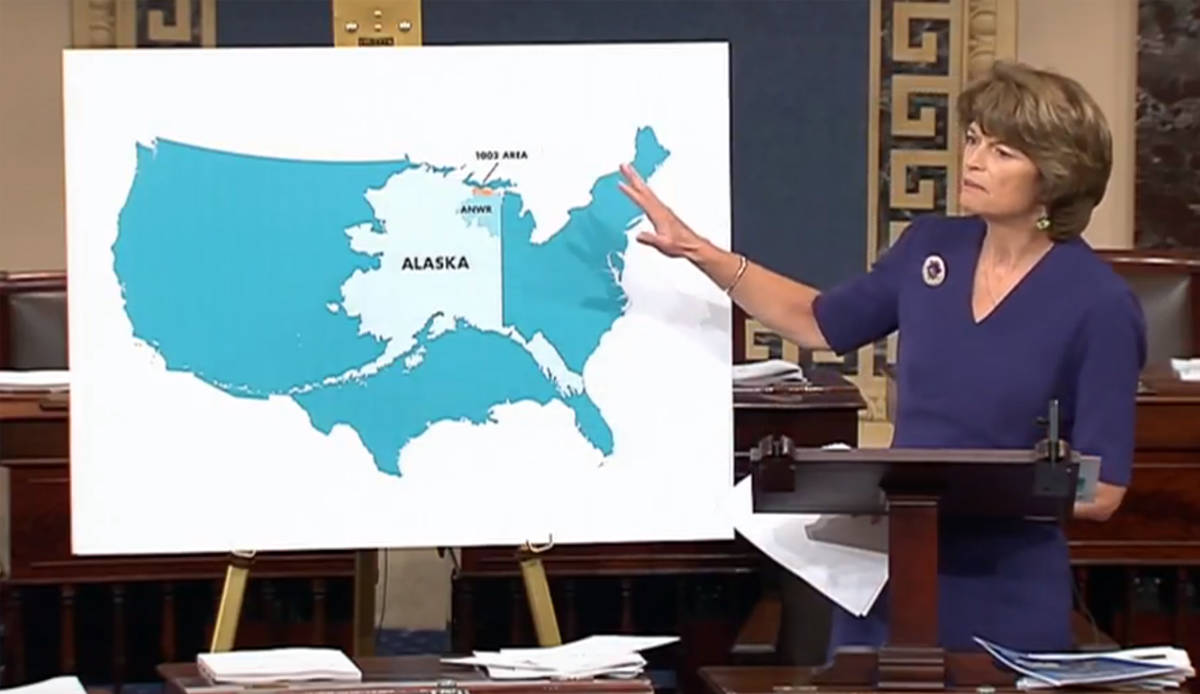As the final votes were tallied and Speaker of the House Paul Ryan, R-Wisconsin, enthusiastically banged his gavel, U.S. Rep. Don Young, R-Alaska, was smiling.
On Tuesday morning, Alaska Time, the U.S. House of Representatives voted 227-203 to approve a $1.4 trillion tax cut drafted by the House’s Republican leaders. Included within the tax cut is a provision opening the coastal plain of the Arctic National Wildlife Refuge to oil and gas drilling. That provision has been a goal of Alaska’s Congressional delegation for 40 years, and on Tuesday, it appeared within the grasp of the delegation. At 8:45 p.m. Alaska time, the U.S. Senate voted 51-48 to approve the cut and the drilling.
The Senate’s Tuesday-night vote will be followed by a procedural vote in the House sometime Wednesday, and the measure will go to the desk of President Donald Trump after that. He is expected to approve it.
After the House voted, members shook hands with Young, and a few offered fist bumps of congratulations.
“Opening ANWR means more jobs for Alaskans, economic growth and securing America’s energy independence for generations to come. I have fought this battle for over 40 years and I am hopeful that we will see this to the finish line,” Young said in a prepared statement after the House vote.
On the Senate side, Sen. Dan Sullivan, R-Alaska, was prepared to cast a “yes” vote. He had just returned to Washington, D.C. from Afghanistan, his office said. While in Afghanistan, Sullivan spent time with soldiers deployed to that nation from Joint Base Elmendorf-Richardson in Anchorage.
U.S. Sen. Lisa Murkowski, R-Alaska, was likewise prepared to vote for the bill. In a nod to former U.S. Sen. Ted Stevens, she wore a set of “The Incredible Hulk” earrings and a matching scarf. Stevens, before his defeat by former Sen. Mark Begich, D-Alaska, in 2008, was known for wearing a necktie featuring the Marvel superhero on days when the Senate voted on critical legislation.
Stevens avidly pushed Arctic drilling during his time in the Senate.
“This bill will deliver tax cuts and new jobs to hardworking Americans,” Murkowski said in a floor speech before the Senate’s vote.
Murkowski was the lead author of the ANWR drilling provision within the tax cut and is the main reason it exists.
“We have a small area that has enormous potential. Why, why would we continue to deny that potential?” she said in her speech.
She also indirectly acknowledged her father, former U.S. Senator and Alaska Governor Frank Murkowski, by saying the fight for ANWR drilling “has been a multi-generational one.”
The final version of the bill includes a section that permits two sales of drilling rights in the refuge’s coastal plain. According to federal estimates, those sales are expected to bring in $2.2 billion over the next 10 years. Half of that money is expected to go to the state of Alaska. No oil production is expected in that decade, so the only forecast proceeds are those from the rights sales.
• Contact reporter James Brooks at james.k.brooks@juneauempire.com or call 523-2258.

